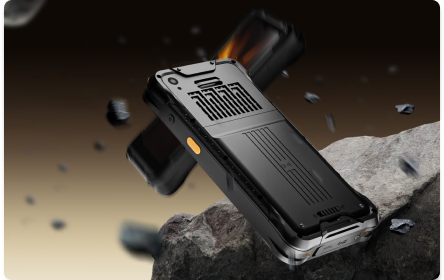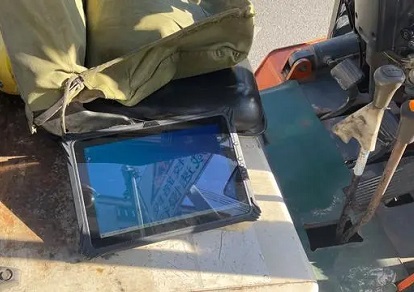
Touch screens have become a ubiquitous feature of modern technology. From smartphones to ATMs, touch screens are everywhere. They allow for quick and easy interaction with devices, making them an essential tool for any business in today's digital age. But with so many different types of touch screens available, how do you choose the right one for your business?
In this article, we'll take a closer look at resistive and capacitive touch screens – two of the most common touch screen technologies in use today. We'll explain the differences between the two, how they work, and which one might be the best choice for your business.

Difference between Resistive Vs Capacitive Touch Screen
The key difference between resistive and capacitive touch screens lies in the way they detect touch. Resistive touch screens detect touch by sensing pressure applied to the screen's surface, while capacitive touch screens detect touch by sensing changes in electrical fields.
Resistive Touch Screen
Resistive touch screens are made up of two separate layers – a flexible top layer and a rigid bottom layer. The top layer is coated with a conductive material, while the bottom layer is coated with a resistive material. When you press on the screen, the two layers come into contact, and the pressure creates a connection between the two layers, registering a touch event.
How do capacitive touch screens work?
Capacitive touch screens, on the other hand, work by sensing changes in electrical fields. The screen is coated with a conductive material, and when you touch the screen, it creates a disruption in the electrical field. This disruption is detected by the touch screen controller, which registers a touch event.
There are two types of capacitive touch screens – surface capacitive and projected capacitive. Surface capacitive touch screens have a thin layer of conducting material on the surface of the glass, while projected capacitive touch screens have a grid of electrodes embedded in the glass.
Projected capacitive touch screens are more responsive than surface capacitive touch screens because they can detect touches through non-conductive materials like gloves and plastics. They are also more durable and scratch-resistant than surface capacitive touch screens.
How to choose the right touch screen for your business?
When choosing a touch screen for your business, several factors should be considered. Here are some of the key factors to keep in mind:
1. Screen Size: The size of the touch screen should be appropriate for the intended use. Touch screens used for POS systems, for example, should be large enough to display all relevant information clearly.
2. Durability: Touch screens used in industrial or commercial environments should be durable, scratch-resistant, and able to handle harsh environments.
3. Touch Sensitivity: Touch screens used for applications that require high accuracy, like signature capture or drawing, should have high touch sensitivity.
4. Compatibility: Touch screens should be compatible with existing hardware and software.
When it comes to choosing between resistive and capacitive touch screens, there are a few things to keep in mind. Resistive touch screens are more affordable than capacitive touch screens, making them an excellent choice for businesses on a budget. They are also easier to use with gloves, pens, and other pointed devices.
Capacitive touch screens, however, are more durable, responsive, and offer multi-touch capability. This makes them the go-to choice for applications that require high accuracy and performance, like gaming and smartphones.
Conclusion
In summary, resistive and capacitive touch screens both have their advantages and disadvantages, and the right choice will depend on your specific business needs. Resistive touch screens are affordable and work with gloves, while capacitive touch screens are more durable and responsive, making them ideal for high-performance applications. When in doubt, seek the advice of an expert who can help you make the right choice for your business.
You may be interested in these products from leading rugged computer manufacturer EMDOOR:









